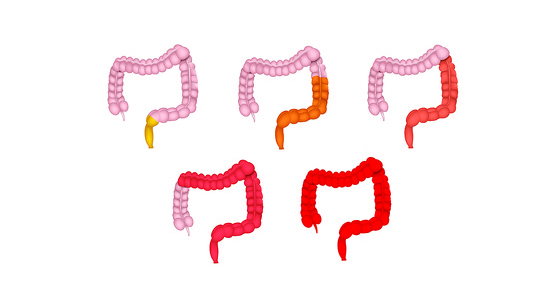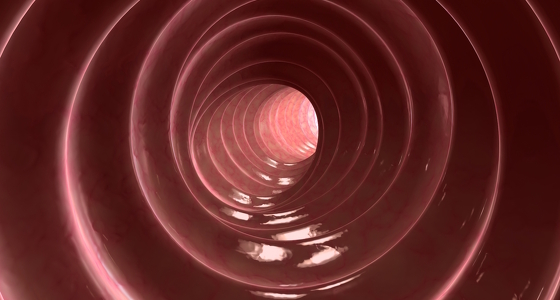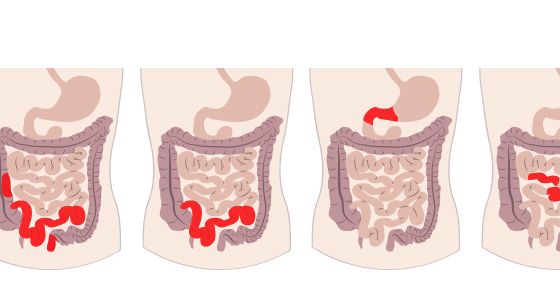
The name indeterminate colitis is given when it’s unclear if a person has Crohn’s disease or ulcerative colitis (UC). It is thought that around 15% of people with inflammatory bowel disease (IBD) are initially given this diagnosis.
Crohn’s and UC are chronic lifelong conditions which are part of a group of conditions known as IBD. It causes inflammation of the gastrointestinal tract (gut). This can cause abdominal discomfort and frequent emptying of the colon.
While Crohn’s disease can affect any of the gastrointestinal tract (GI tract) UC just affects the colon (large intestine) and rectum. Crohn’s disease can also affect the entire thickness of the bowel wall, while UC only involves the innermost lining of the colon. Crohn’s disease may also skip areas - meaning you could have inflammation near you mouth and also in your small bowel but nowhere in between.
People with a diagnosis of indeterminate colitis or IBDU often display symptoms and test results which are either more like Crohn's disease or more like ulcerative colitis, but doctors aren't able to tell 100% which form of IBD you have. The treatment that you receive may be based on whether your IBDU is more like Crohn's disease or ulcerative colitis. However, in some cases they can't be sure.
It is thought to be an autoimmune condition.
There is no known cure for IBD. Some people have surgery to remove parts of their GI tract which are affected but inflammation could return at another time and having this surgery doesn’t necessarily remove all of the symptoms of IBD.



In some people their diagnosis becomes more clear over time and their diagnosis is changed to Crohn's disease or ulcerative colitis, but in others it will remain unclear.



